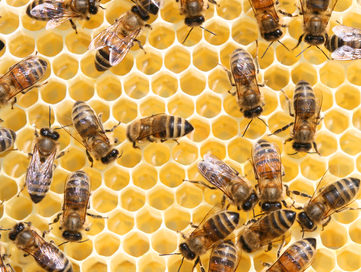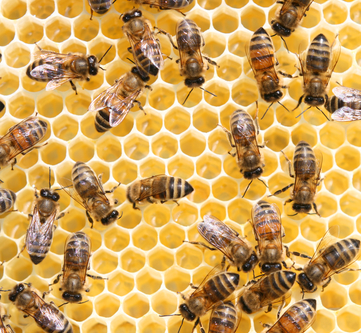About to get busier: Dutch scientists train bees to sniff out coronavirus

 Scientists have harnessed bees’ acute sense of smell to detect coronavirus in a method that could be applied in developing countries lacking the necessary diagnostic tools, researchers at Wageningen University say.
Scientists have harnessed bees’ acute sense of smell to detect coronavirus in a method that could be applied in developing countries lacking the necessary diagnostic tools, researchers at Wageningen University say.
The project, carried out by startup InsectSense and Wageningen Bioveterinary Research (WBVR), involved the conditioning of some 150 bees using the Pavlov method. Every time the bees were exposed to the virus, they were given sugar water as a reward.
Coronavirus causes a metabolic change in the body which releases a certain smell which bees, and dogs, can pick up on because of their highly developed sense of smell. By repeating the action the bees associated the sugar water with the presence of the coronavirus smell and stuck out their tongues.
Training the bees only takes a few minutes, the scientists found, and it takes the bees just seconds to identify the smell.
The samples for the tests were initially taken from healthy and infected mink, resulting in very few false-negatives and false-positives, the researchers said. Subsequent tests using human samples yielded equally good results.
If the method can be successfully scaled up, bees could be trained to detect coronavirus all over the world, the scientists hope. InsectSense has already designed a prototype machine to train bees and a bisosensor which uses the bees to diagnose the disease.
There is no danger the bees will spread the virus, professor Wim van der Poel told DutchNews.nl. ‘The bees are not sensitive to the virus and don’t come into direct contact with it during the trials.’
‘BeeSense’, as the diagnostic system has been dubbed, could help developing countries which lack the infrastructure for diagnosis and have no access to state of the art technology.
Wageningen and InsectSense are also working on the so-called LumiNose biochip technology, which uses insect odour receptors to detect the virus. Once perfected non-invasive, precise and cost-effective testing using this technology could be on the horizon, the scientists said.
Thank you for donating to DutchNews.nl.
We could not provide the Dutch News service, and keep it free of charge, without the generous support of our readers. Your donations allow us to report on issues you tell us matter, and provide you with a summary of the most important Dutch news each day.
Make a donation